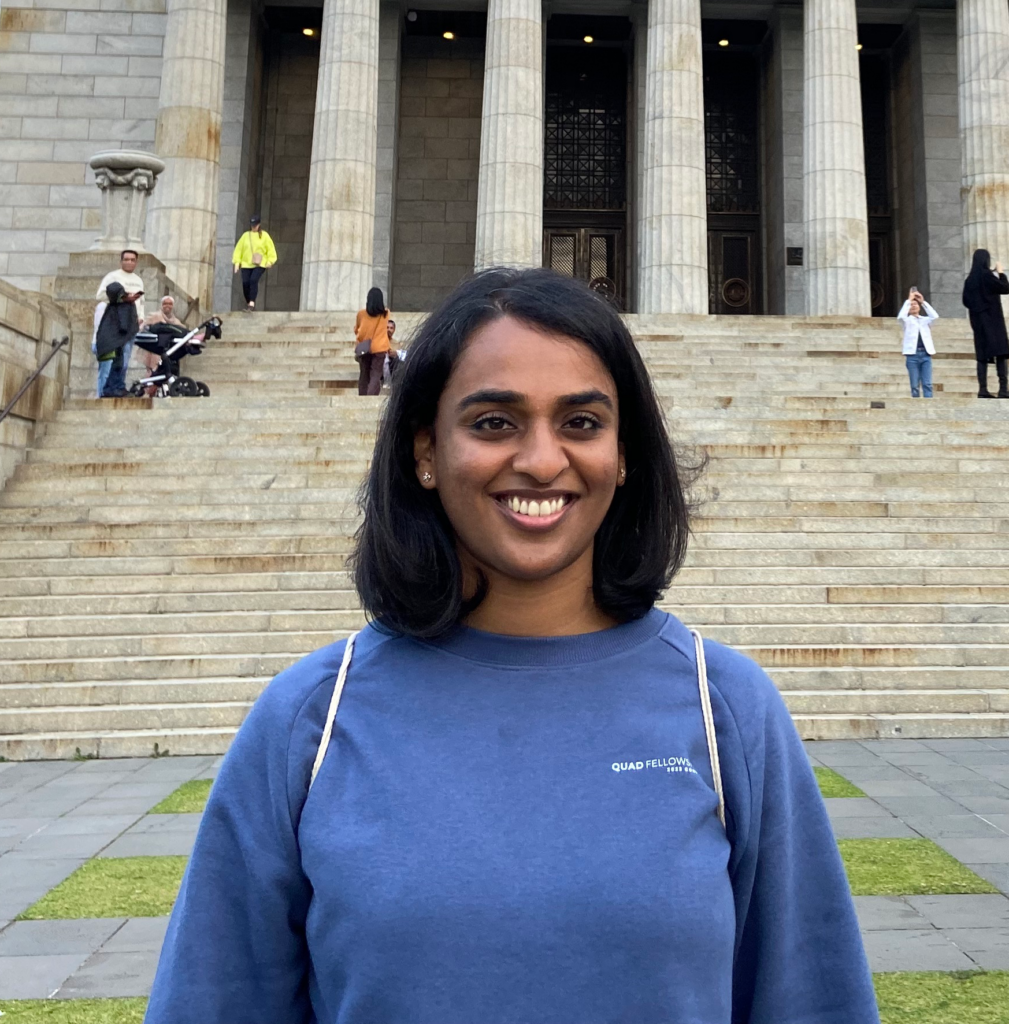Divya Ramesh awarded Rackham Barbour Scholarship

CSE PhD student Divya Ramesh has been selected to receive the Barbour Scholarship in recognition of her research accomplishments. Part of the Rackham Predoctoral Fellowship program, the Barbour Scholarship was endowed by Levi Lewis Barbour in 1917 to support female doctoral candidates from countries in Asia who demonstrate outstanding academic and professional achievements in STEM fields.
Ramesh’s research examines new possibilities for inequity and uncertainty that have arisen as a result of rapid developments in artificial intelligence (AI) technology, as well as seeking out how we might reimagine, or hold accountable, the algorithms and the platforms that power these applications to ensure more socially responsible AI.
While AI has opened up unprecedented opportunities for innovation, these advances can come at a cost. One enormous cost is AI’s potential for making biased predictions or exacerbating existing inequities, resulting in greater precarity. Examples of precarity-creating situations include AI-based scams that disproportionately affect low-income or low-literacy populations, image analysis algorithms that perpetuate racial or gender biases, and the substitution of human jobs with AI.
Processes for implementing accountability in AI are needed but difficult to implement. Lack of publicly available information, legislative inaction, and unwillingness or ignorance on the part of technology providers have hindered efforts to regulate or assess the social effects of AI algorithms.
To address these gaps, Ramesh seeks to develop a more holistic approach to algorithmic accountability by exploring how users in financially precarious situations interact with AI systems. Adopting a sociotechnical lens, Ramesh’s research closely examines the everyday decisions of users experiencing financial precarity in two communities in India and the US to explore how their objectives, values, and perceptions could inform the design of algorithmic accountability systems.
Ramesh’s research on this topic has met with great success, resulting in two published papers at respected ACM conferences, namely FAccT and DIS. In addition to her research efforts, she has demonstrated a strong commitment to enhancing diversity, equity, and inclusion in CSE and the computer science field more broadly. She served as co-chair of ECSEL+, a student org focused on providing support for women and nonbinary grad students in CSE, and helped expand and rebrand the organization as VoiCSEs, which aims to support grad students from marginalized groups.
“Divya’s strong background in applied Machine Learning and Human-Computer Interaction (HCI) and her passion for creating technology that has a positive impact on people and society sets her on a path to be an exceptionally successful researcher with clear leadership potential in her field and research community more broadly,” said Prof. Nikola Banovic, Ramesh’s advisor and nominator.

 MENU
MENU